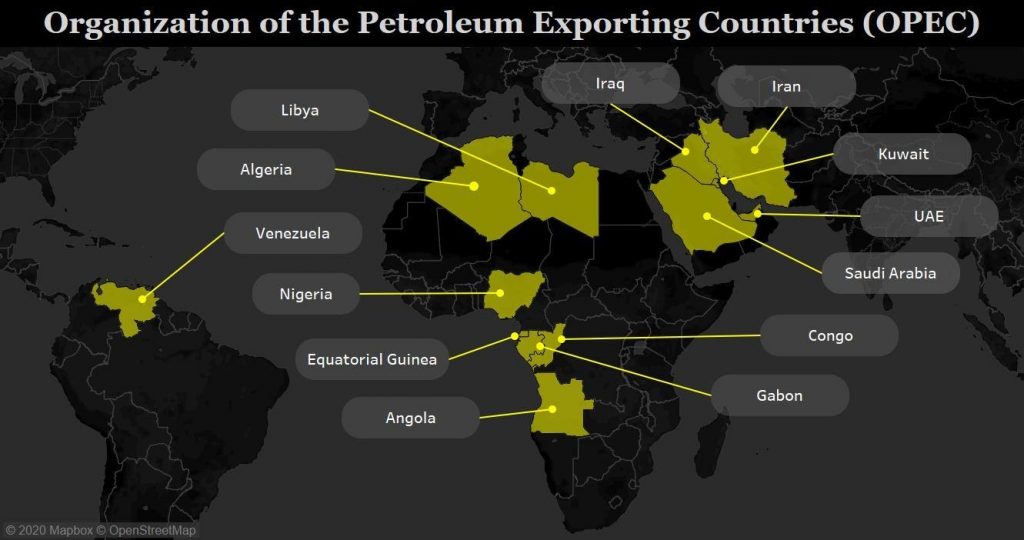OPEC
About OPEC arrangement
- The Organization of the Petroleum Exporting Countries (OPEC) is a group consisting of 13 of the world’s major oil-exporting nations.
- Countries that belong to OPEC include Iran, Iraq, Kuwait, Saudi Arabia, and Venezuela (the five founders), plus the United Arab Emirates, Libya, Algeria, Nigeria, Angola, Congo, Equatorial Guinea and Gabon.
- Note: Ecuador and Qatar terminated their membership of OPEC recently.
- OPEC was founded in 1960 to coordinate the petroleum policies of its members and to provide member states with technical and economic aid.
- OPEC is used to work as a cartel and fix prices in a favourable band. It could bring down prices by increasing oil production and raise prices by cutting production.
OPEC Plus
- The 2014 oil crisis, which was accentuated by oversupply of crude, brought down prices below $30 a barrel. Since then, OPEC has been working with non-OPEC countries like Russia, Azerbaijan, Bahrain, Brunei, Kazakhstan, Malaysia, Mexico, Oman, Sudan and South Sudan to fix the global prices and supply.
- Known as the “OPEC Plus” arrangement, this alliance kept production lower and pumped up the prices.

Why in News?
- OPEC’s share of India’s oil imports fell to the lowest in at least two decades in the year to the end of March as overall purchases by India fell to a six-year low.
- Total crude imports by India, which is the world’s third-biggest oil importer, fell to 3.97 million barrels per day (bpd) in FY21, down 11.8% from a year earlier.
- India bought more U.S. and Canadian oil at the expense of that from Africa and West Asia, reducing purchases from members of OPEC to about 2.86 million bpd and reducing the group’s share of imports to 72% from about 80% previously. That is the lowest share since at least FY02, before which crude import data is not available.
- U.S. and Canadian oil accounted for about 7% and 1.3% respectively of India’s imports compared to 4.5% and 0.60% a year earlier.
- The U.S. emerged as the fifth-biggest supplier, up two places from FY20.
Reference:
Subscribe
Login
0 Comments
